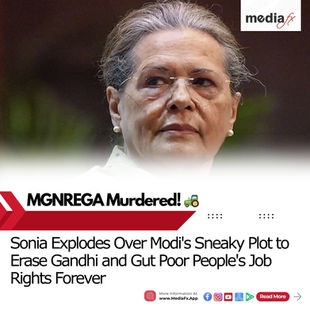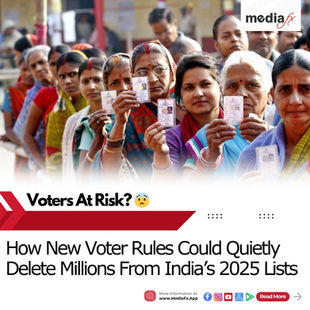India Denies Visa to Activist Kshama Sawant: Political Move? 🤔🛂
- MediaFx

- Feb 4, 2025
- 2 min read
TL;DR: Indian-American activist Kshama Sawant's visa application to visit her ailing mother in India was denied without explanation. Sawant believes this is political retaliation due to her activism against caste discrimination and criticism of the BJP government. She plans to challenge the decision and seek support from U.S. lawmakers.

Indian-American activist Kshama Sawant, known for her fight against caste discrimination in the U.S., has been denied a visa by the Indian government. She wanted to visit her sick mother in Bengaluru but faced rejection without any reason given. Sawant suspects this move is politically motivated due to her outspoken criticism of the BJP government and her role in passing anti-caste legislation in Seattle. She plans to challenge the decision and seek support from U.S. lawmakers.
Sawant, a former Seattle City Council member, played a key role in making Seattle the first U.S. city to ban caste-based discrimination in 2023. This move faced opposition from groups like the Vishwa Hindu Parishad of America and the Hindu American Foundation, who argued that it unfairly targeted Hindus. Despite the pushback, the ordinance was passed with a 6-1 majority, marking a significant win for marginalized communities.
In her visa application process, Sawant applied for an e-visa twice in 2024, both times facing rejection without any explanation. In January 2025, she applied for an emergency entry visa due to her mother's declining health, attaching a doctor's note to support her case. Despite assurances of a quick response, she received no communication from the Indian authorities. Sawant also wrote to External Affairs Minister S. Jaishankar but did not receive any acknowledgment or response.
Sawant believes that the visa denial is a form of political retaliation by the BJP government due to her activism. She stated, "There seems to be no other plausible explanation at this point than a political rejection by the BJP government." She plans to organize a public petition and seek support from U.S. lawmakers like Pramila Jayapal and Ro Khanna to urge the Modi government to allow her to visit her sick mother.
This incident raises concerns about the Indian government's treatment of activists and its commitment to democratic values. Denying a visa to an individual seeking to visit their ailing parent, especially without providing any reasons, sets a troubling precedent. It also highlights the challenges faced by those who speak out against policies they perceive as unjust.
Sawant's case is not isolated. Other activists and individuals critical of the Indian government have faced similar challenges, leading to concerns about freedom of expression and the right to dissent. As Sawant herself noted, "I'm not alone in this."
In conclusion, the denial of Kshama Sawant's visa application appears to be a politically motivated act by the BJP government, reflecting a broader pattern of suppressing dissent and targeting activists. This raises serious concerns about the state of democracy and freedom of expression in India.













































